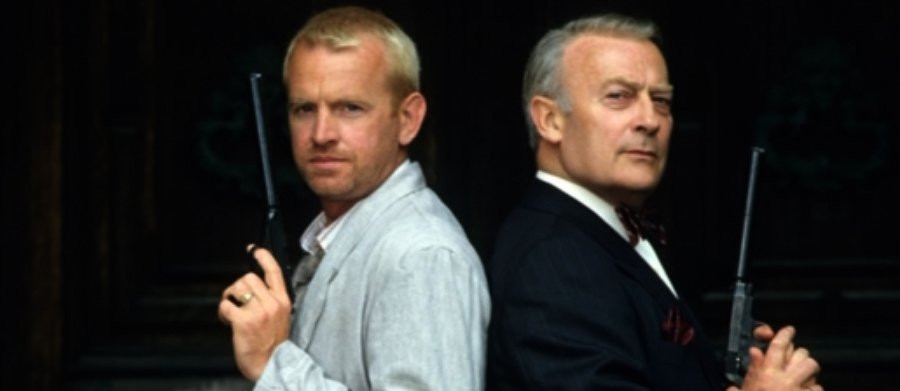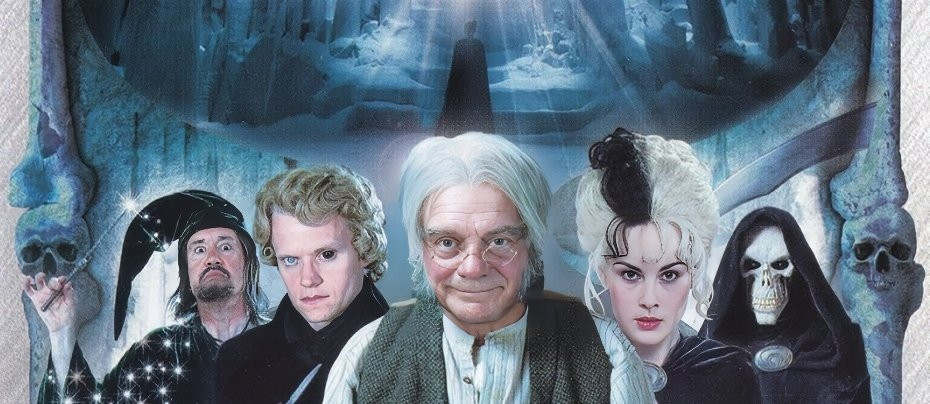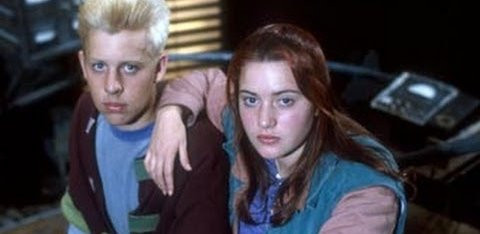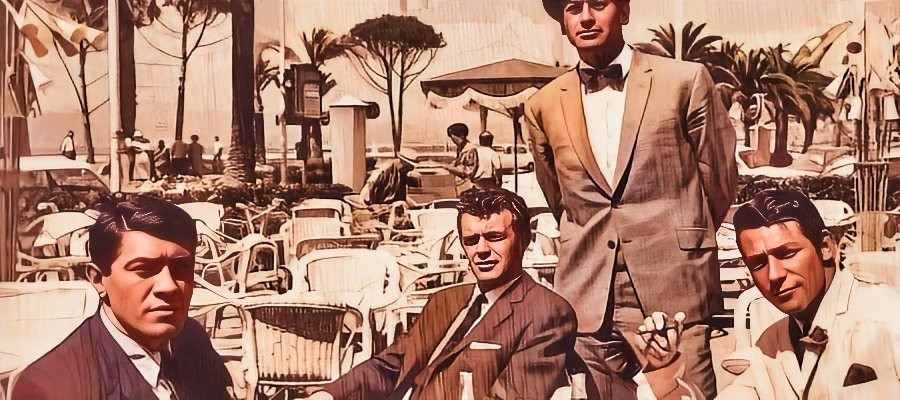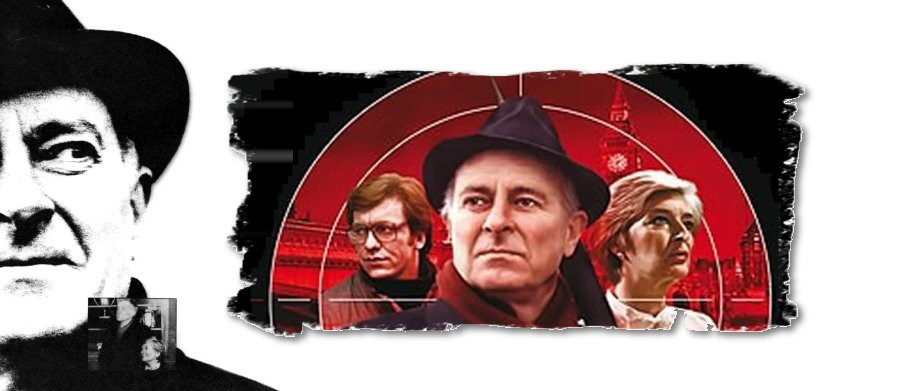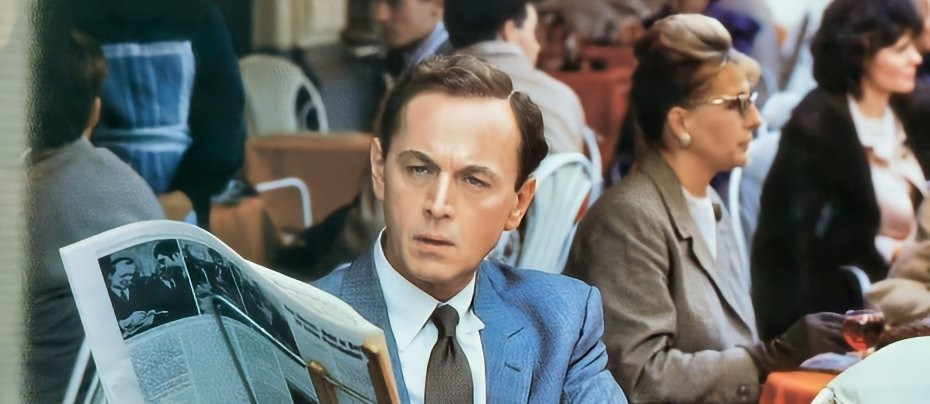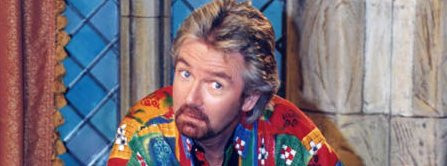
Ashenden
1991 - United KingdomIt is a curious fact that, although various Government Departments had long been active in Intelligence, it was only in 1909 that the British Empire established a central Secret Service, and its Golden Age followed immediately. It was initially so poorly regarded that its founding Director was a Naval Officer who had been placed on the Retired List due to his extreme seasickness. This was Mansfield Smith-Cumming, who signed memoranda simply as "C" and was destined to be the prototype of Ian Fleming's "M." By the time of his death in 1923, he had built it into one of the most powerful and feared organisations in the world.
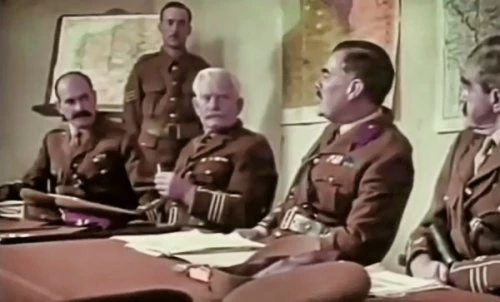
The cold blooded courage of the likes of Sir Paul Dukes, Sidney Reilly, Frederick Marshman Bailey, George Hill, and Stephen Alley gave substance to the legend of the "Gentleman Spy." It also did no harm to that legend that a number of already well established, even famous, literary figures were recruited to work in different capacities for British Intelligence during the Great War.
The different ways they reacted says a lot about their different characters. John Buchan, whose great spy novel, 'The Thirty-Nine Steps' was published before he joined Intelligence, never wrote about his own War experiences, partly because he valued his reputation for discretion, but also because, as he said himself, no one would believe some of the things he knew if he put them in a novel. By contrast, Compton Mackenzie wrote four volumes of detailed memoirs that later got him into trouble with the Official Secrets Act. Reading them today, one gets the impression that he was completely in his element and enjoyed himself thoroughly, effectively running Greece for a while and later building his own spy network in the Aegean, complete with semi-private Navy.
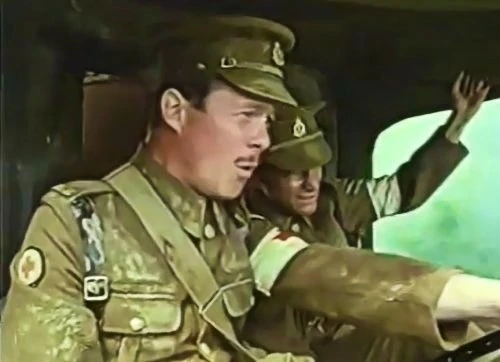
William Somerset Maugham definitely did not enjoy himself. He was not a cheerful character at the best of times and the moral compromises of Intelligence work increased his self loathing. His literary response was 'Ashenden,' a book of linked short stories centred on an eponymous British agent who was a thinly disguised version of himself. There is something confessional about it, like Graham Greene, but without any sense of absolution. However, it should be noted that, although it is based directly on Maugham's own experience in Switzerland and Russia, it is still fiction and one should not treat it as strict autobiography. He does take some liberties with facts and characters based on known historical models.
The stories are certainly, as one would expect of Maugham, constructed with great skill, which tends to suggest their artifice. Also as one would expect of Maugham, they reflect his gloomy world view and his negative opinion of human nature in particular. As a result, they have been adapted frequently, most famously by Sir Alfred Hitchcock in 'Secret Agent' in 1936, but the adaptations have usually tried to tone down their misanthropy a bit.
This is undoubtedly the case with the handsomely mounted BBC Ashenden. Four of the best stories are the basis of four freestanding but linked episodes true to the structure of the book but departing from it in some crucial points of detail and style. Although the endings are all - spoiler alert (not that it should be necessary with Maugham) - predictably depressing, there is sometimes an attempt to inject a jauntiness that seems more Buchan-esque. Ashenden even jokes at one point, "I'm not Richard Hannay."
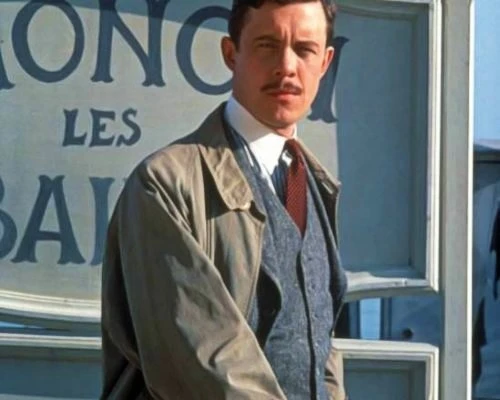
No, Ashenden is definitely not Buchan's straight arrow hero, and the only criticism of Alex Jennings' likeable performance in the title role is that this likeability rather misses the whole point. It is also not Jennings' fault that he is rather overshadowed by an extremely strong supporting and guest cast.
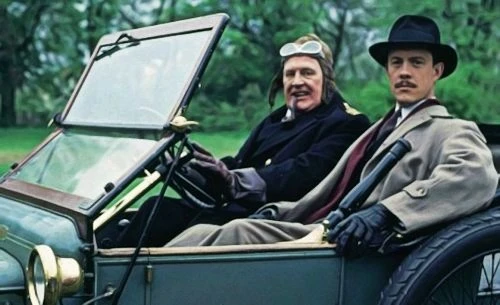
Joss Ackland is simply perfect as Smith-Cumming. If he seems a bit over the top, the evidence suggests that the original really was like that. Indeed, he has been dialed back a bit to make him more credible. For example, Smith-Cumming is shown as having a wooden leg due to a car crash caused by his own irresponsible driving - not only is this perfectly true, the script is commendably restrained in not mentioning the legend, dubious but not discouraged by the man himself, that Smith-Cumming cut off the leg personally with a penknife.
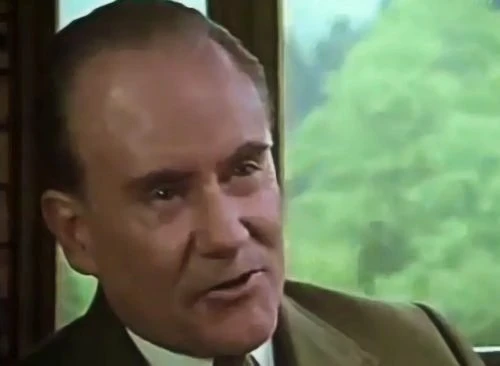
Another truly great actor, Ian Bannen, is jarringly good as Ashenden's insensitively affable superior in Military Intelligence. The scenes which show how Ashenden and all the flawed characters in his world are just tools in an interdepartmental turf war between Military Intelligence and the more professional "C" are particularly clever. It slowly becomes more apparent that all Ashenden's moral compromises are actually in the cause of bureaucratic infighting, and, even in this, he may even be on the wrong side as the apparently omniscient and omnipotent Bannen character is gradually revealed as relatively incompetent.
A young Jason Isaacs is perhaps not obvious casting as an American but gives a precocious performance in an underwritten role in one of many subplots that are never really developed. It is by no means an uncomplimentary criticism to say that Ashenden could have done with a couple more episodes to explore these more thoroughly.
In the first episode, 'The Dark Woman,' Harriet Walter makes a literally fatal 'femme fatale' far more sympathetic than she is in the book. This really sets the tone of the whole project, in that the whole episode is both far more dramatic and far more sentimental than the original story.
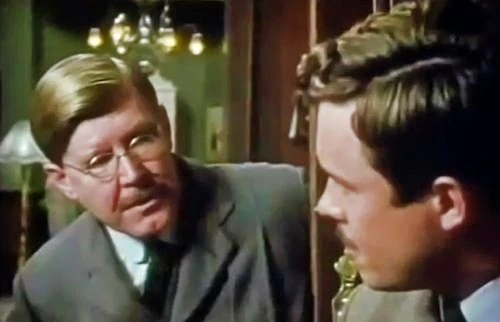
This is doubly true of the second episode, 'The Traitor,' in which Alan Bennett, in one of his best performances on camera, and Anna Carteret are poignant as an apparently devoted couple who treat their dog as a substitute child. The dog is also very well cast and his final scene is like a punch to the guts.
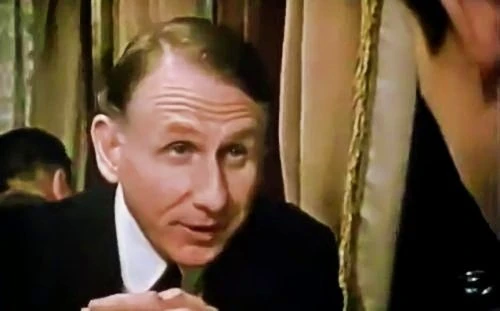
The third episode, 'Mr Harrington's Washing,' is enlivened by a delightful Rene Auberjonois, best known as Constable Odo in Star Trek: Deep Space Nine, as a stereotypical American businessman who seems oblivious to the dangers all around him as the Bolsheviks seize power in Russia (which, in real life, Maugham later said, modestly, he could have prevented if he had been sent there six months earlier than he was).
In the final episode, 'The Hairless Mexican' Elizabeth McGovern is charming as a young widow with whom Ashenden apparently falls in love in a mission to Naples - this is obviously not going to end well. The episode, and arguably the whole series, is, however, stolen by a boastful, extroverted, but totally pitiless Mexican assassin played gloriously by Alfred Molina.
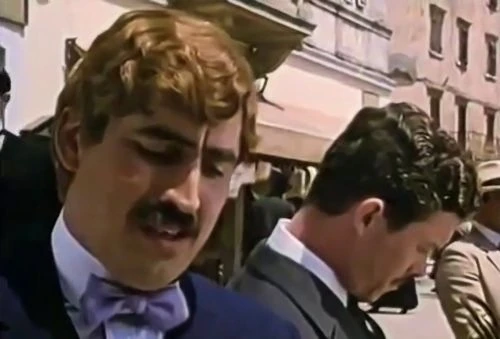
These days they would probably give the Molina character his own show. Things were different in 1991. There was a sense of euphoria when the Cold War ended in a surprisingly peaceful victory for the West. The cynicism of the Cold War spy thriller - which is what Ashenden was, albeit in period costume - was suddenly unfashionable. The series was an expensive flop.
One can understand why. For all its prettiness, it is still a grim watch. Yet, at the same time, it is probably a bit too airbrushed for Maugham purists. It is difficult to see how it was ever going to find its market. It was good but badly mistimed.
So perhaps it now deserves a re-evaluation. Viewed strictly on its own terms - apart from any admiration or dislike of its source material - it is a superbly well crafted drama. Some of the scenes are unbearably tense, even when one knows exactly what is going to happen.
One also begins to care about the characters - almost all of them. In the moral grey area of espionage, one finds oneself becoming less judgmental. One sees no one is wholly good or wholly bad. One begins to see they are all human beings. We dislike a man because he is a terrorist, but then we see he is also a man who risks his life for a woman he loves. We dislike another man because he has caused the death of a character we liked, but then we see his family life. We are irritated by a third man because he appears to be a pedantic bore, but then we see his casual kindness. In the end we feel sad about all the death and all the suffering - all of it - which is not something we get out of Ian Fleming.
The BBC spent a lot of money on the project and the production values are generally very good, even if those with an eye for such things can sometimes see where money has been saved. There is never a sense of the epic, but there is a fine sense of period and some of the location work is stunning.
Yet there are times when one feels that the best episodes of Poirot did this sort of thing better. It also suffers in comparison with another ITV series, Reilly Ace of Spies, to which it may have been a belated response. Much of the problem is that, in spite of the efforts of the adaptation to make him more dynamic, Ashenden is a relatively passive protagonist. He collaborates with what disturbs him and then just stews in his own self hatred afterwards, where Reilly tried to change the weather and seems to have had no qualms about what he did. If Reilly was in reality slightly psychopathic, at least he was true to himself, which makes him a better hero than the doormat Ashenden. Indeed, the fact that the adaptation makes Ashenden more likeable actually makes him more disagreeable, because his failure to act on his feelings implies he is something of a coward, which is the one failing that is always unforgivable in a hero.
Review by John Winterson Richards
John Winterson Richards is the author of the 'Xenophobe's Guide to the Welsh' and the 'Bluffer's Guide to Small Business,' both of which have been reprinted more than twenty times in English and translated into several other languages. He was editor of the latest Bluffer's Guide to Management and, as a freelance writer, has had over 500 commissioned articles published.
He is also the author of ‘How to Build Your Own Pyramid: A Practical Guide to Organisational Structures' and co-author of 'The Context of Christ: the History and Politics of Rome and Judea, 100 BC - 33 AD,' as well as the author of several novels under the name Charles Cromwell, all of which can be downloaded from Amazon. John has also written over 100 reviews for Television Heaven.
John's Website can be found here: John Winterson Richards
Seen this show? How do you rate it?
Seen this show? How do you rate it?
Published on March 2nd, 2021. Written by John Winterson Richards for Television Heaven.


